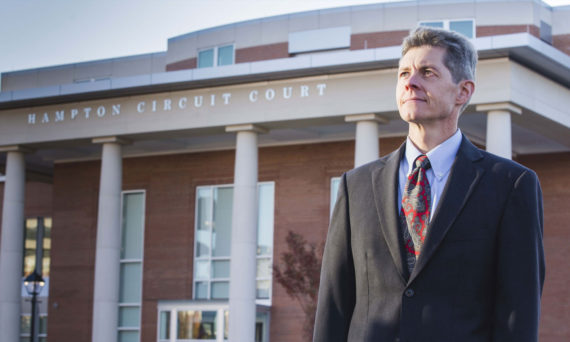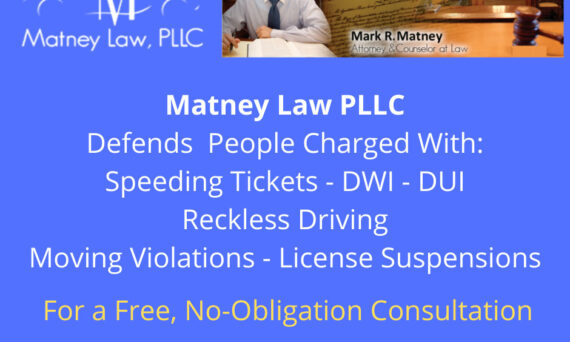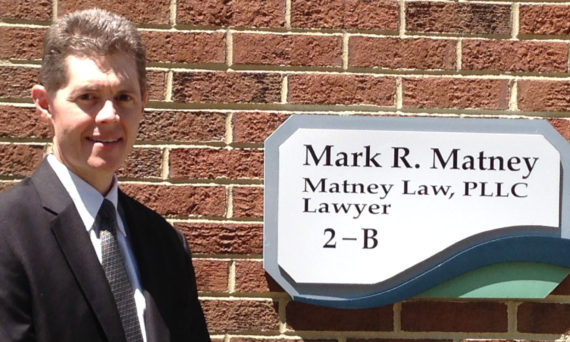Penalties For DUI Conviction
Attorney Mark Matney – Holcomb Law, PC has put together this detailed document for Penalties For DUI Conviction in Virginia. Attorney Mark Matney provides legal defense for drunk drivers in Hampton Roads, Newport News, Hampton, Williamsburg, and the counties of York, James City, New Kent, Isle of Wight, and Surry.
Call (757) 703-4556 or Click Here to email Attorney Mark Matney for a Free, No-Obligation Consultation!
What are the Penalties for a DUI conviction in Virginia?
Virginia Code Section 18.2-270 provides mandatory minimum sentencing requirements for people who are convicted of DUI and imposes enhanced penalties for cases that involve a high BAC and/or a subsequent offense. A judge must sentence someone who is convicted of a first offense DUI whose BAC is below 0.15 as follows: fine between $250 and $2,500, one year license suspension, completion of the Virginia Alcohol Safety Action Program (VASAP), and installation of an ignition interlock system for 6–12 months. Although there is no mandatory jail sentence for a first offense DUI with a BAC under 0.15, judges typically order a suspended jail sentence that could be imposed if the person fails to complete VASAP or does not remain of good behavior. In most cases, a first offender does not go to jail other than at the time of the arrest, receives a restricted license to drive for work, school, and certain other defined purposes on the day of court, and receives a fine close to the $250 minimum.
With respect to the alcohol level, even for a first offense, jail will be imposed for a BAC of 0.15 or above. In Virginia, a BAC of 0.15 to 0.20 will result in a five-day mandatory minimum jail sentence and if the BAC is above 0.20 the jail sentence will increase to a mandatory minimum of 10 days.
The penalties for a DUI conviction increase dramatically for a second offense. The judge must order the defendant’s license to be suspended for three years and the minimum fine increases to $500. If the second offense occurs within five years of the first offense, there is a mandatory minimum 20-day jail sentence and the defendant will not be eligible to apply for a restricted license until one year after the date of the conviction. If the second offense occurs within five to ten years of the first offense, then the mandatory minimum jail sentence is ten days and a restricted license may be obtained after four months. In both cases the judge may impose the ignition interlock machine for as long as the person has a restricted license.
The BAC is a significant factor in a second offense. The mandatory minimum jail sentence for a high BAC doubles when attached to a second offense. Thus, a person who is convicted of a second offense DUI with an elevated BAC will receive 10 mandatory days of jail with a BAC of 0.15 to 0.20 or a minimum of 20 days of jail if the BAC is over 0.20. Significantly, the mandatory jail for a high BAC is in addition to the mandatory jail for the second offense itself. This means that if a person is convicted of a second offense DUI within five years of a first offense and has a BAC over 0.20, then he would receive a mandatory minimum jail sentence of 20 days for the second offense, plus at least 20 days of jail for the high BAC, for a total of at least 40 days in jail.
A third offense DUI conviction is a Class 6 felony. This means the loss of certain rights (such as voting, serving as a notary, and possessing a firearm) in addition to the penalties imposed by the court. Being found guilty of a third DUI results in an indefinite license suspension and no opportunity to apply for a restricted license until three years after the conviction. The minimum fine for a third DUI is $1,000. The sentencing range for a third DUI conviction is one to five years with a mandatory minimum time in jail of six months for a third offense within five years and at least three months in jail if the third offense is within five to ten years of the priors.
In addition to the mandatory sentencing requirements of the Virginia Code, judges evaluate several other factors to determine whether a DUI sentence should include enhanced penalties. These factors include: blood alcohol level, refusal to submit to blood alcohol testing, whether or not the driver caused an accident, degree of cooperation with law enforcement, any additional charges against the defendant, and any prior criminal history. Moreover, many judges consider personal injuries to others as an aggravating factor that justifies imposing or increasing time in jail. In one of my first-offense DUI cases, the driver injured his passenger and received a six-month jail sentence (three months to serve after good time credit) and in another first-offense DUI case the driver injured a couple who was driving another vehicle and received a twelve-month jail sentence, which he appealed to the next level court. Most first-offense DUI cases do not involve any active jail time, but the extent of the injuries in these two cases provoked the judges to deal more harshly with the defendants.
It is important to note that judges consider lack of cooperation with the police when they make their sentencing determinations. Two reckless driving cases that I handled demonstrate how judges react adversely to conflict between the client and the police. The two clients were in similar situations with comparable speeds and the same judge. The first driver saw his charge amended from the misdemeanor of reckless driving to a traffic infraction. However, the second driver was found guilty of reckless driving. The driver who was convicted of reckless driving had ranted and cursed at the police officer. The judge was simply unwilling to give that driver a break after he had been so discourteous and uncooperative with the officer.
One situation that sometimes affects sentencing is a client’s past criminal history. If a client had a DUI conviction more than ten years before the new charge, then the prior offense cannot be used to elevate the new charge to a second offense. However, the prosecutor or the judge may argue that the person should not be treated the same as someone who is truly a first offender. This argument is sometimes successful in obtaining a more severe sentence than would be typical for someone without the prior record.




